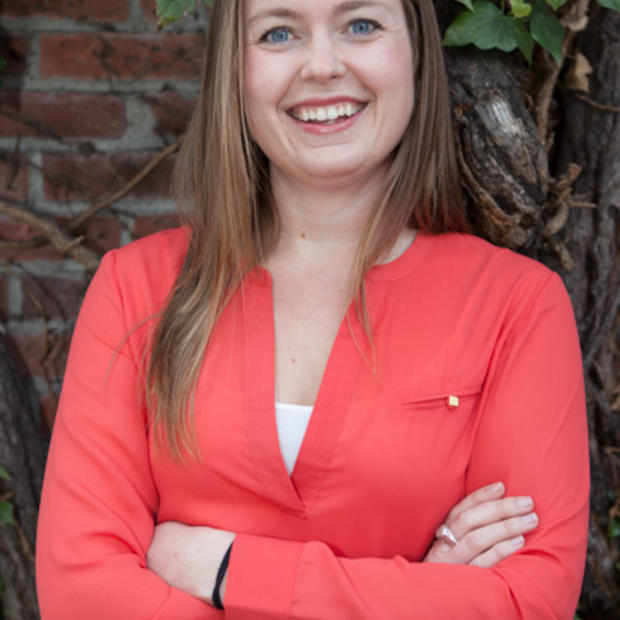Peter Steinbrueck has a raft of things going for him in liberal Seattle. A social justice advocate, he berates the city's high poverty rate, which is worse than the state's. "That's not something I can sit still on," he told Crosscut writers and editors Tuesday. Which is why he's against proposed district elections for city council members: He thinks they'll exacerbate economic disparities between north and south Seattle.
He's firmly on the police reform bandwagon, arguing for a cultural shift and a repopulation of the SPD's top brass. "Many others are approaching retirement age as well," he winks.
He will appeal to neighborhood activists and urban planning geeks: His biggest priority as mayor, he says, would be honing the balance between Seattle's growth and its quality of life -- particularly at a neighborhood level. He berates the destruction of the city's neighborhood service centers and takes careful but gentlemanly aim at Seattle's other neighborhood candidate — Mayor Mike McGinn.
"A mayor has to get out of the office," he says pointedly, "and not be preoccupied with one neighborhood that happens to be experiencing particular job growth."
He even has that peculiarly humble blend of Northwest street cred and local pedigree: A Lakeside grad, he followed in his father's Pike Place Market-rescuing footsteps to save Pike Place a second time, from the hungry fingers of New York investors. He served as a city council member for 10 years before decamping to Harvard to study livable cities.
The Peter Steinbrueck that has emerged from all that is focused on tackling Seattle from a regional perspective: "Seattle needs to get out of its bubble mentality." He holds up a photo of the city taken at night from space. "It doesn't even look like Seattle ... It's an expanding nebula!" he exclaims.

Now, he can do the livable neighborhood jig with the best of them. How do you know if you live in one? "If people can live closer to work and have all of their goods and services within a reasonable walking area," he explains.
He would be a sound guardian of the city's overstretched transportation ecosystem. Steinbrueck assures us that the city will continue to grow, both in terms of its population and its economics. "We have to look to ways of making more efficient use of our roads." His regional thinking would be an asset in a state split by so many transportation bureaus and councils and departments it makes your head spin. (Perhaps he might even think of lumping a few of those resources into one, synchronized transportation system a la Austin's Go.)
He presents himself as a strong shepherd of the plan for the city's waterfront park, which currently seems to be little more than a stylized mess of James Corner's fantasies. Better links to transit, a walkable boulevard along the waterfront, a new Colman Dock and some kind of Native American art element are his prescriptions.
Roads aren't the only thing he's interested in using efficiently. Steinbrueck said he would consider combining the city and county library systems and the Seattle Office of Arts and Culture with the King County Arts Commission.
Still, he shies away from too much efficiency — at least when it comes to urban planning. Density? "I see it as a means toward truer urbanism that's livable," he explained — not as an end in itself. Its pure pursuit, he warns, "can produce blighted conditions in our neighborhoods."
He worries about the influence peddled by Vulcan in South Lake Union re-zoning and the way Chris Hansen has gone about his arena planning ("I'm openminded, but skeptical"). Still, he claims he could get along swimmingly with developers as mayor. Even as he insults one with his next breath [" ... Greg Smith, who doesn't really build anything, but aspires to. Sorry, Greg."]
His stance on education is puzzling: He agrees it's linked to our high poverty level and economic development, encouraging smaller class sizes and higher per capita student spending. But he exclaims defiantly that "It's often overstated how 'bad' our schools are," putting extra emphasis on the scare quotes. This, based on his experience spending a day a year in his sons' northeast Seattle schools with them. Quick, someone tell Superintendent José Banda!
He claims to be a collaborator, citing his leadership on the City Council (He was twice voted into the presidency), yet bristles when asked about a reputation of conflict on the council. He brags about not needing four years of job training, but has no large-scale managerial experience to speak of. His experience as a small business owner and in his role at the council are the closest thing.
Steinbrueck's intent is good; his passion and commitment to Seattle and its people obvious. He strength and vision would be a valuable force behind the planning of our region.
The question, though, is whether he can elbow out his fellow liberal challengers. McGinn has shown bold political savvy of late, throwing his weight behind the Sonics rebirth, banning drones from the city, basking in the glow of Diaz's departure and heroically scooping up the orphan that the city's Family Fourth has become.
Ed Murray became a state hero after throwing his legislative weight behind R-74 last year. Gay rights pocketbooks everywhere remember that. Steinbrueck, who only began fundraising in January, doesn't have quite the same pull. Still, he doesn't seem deterred. "Money will not decide this issue," he said definitively.
"I have prepared most of my life for this job."


